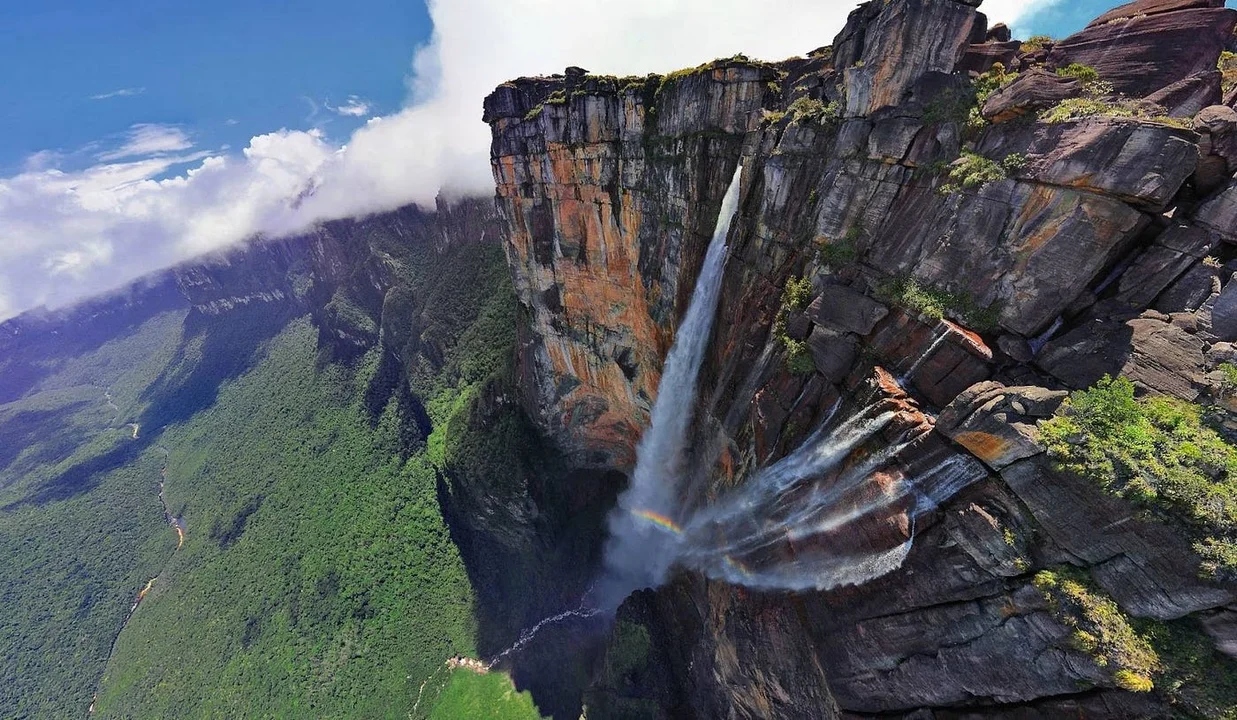Located at the northern tip of South America and bordered by the Caribbean Sea, Venezuela is renowned for its vast oil reserves—the largest in the world—along with an abundance of other mineral resources. The country boasts immense biodiversity and is celebrated for the legacy of its liberators, such as Simón Bolívar and Francisco de Miranda, whose revolutionary efforts and ideals inspired independence movements throughout the region.
In 1811, Venezuela became one of the first Spanish-American territories to declare independence from Spain. However, it was not until June 24, 1821, in the Battle of Carabobo, that the decisive victory of Bolívar’s patriotic forces against the Spanish royalists secured Venezuela’s freedom.
The population is characterized by a rich cultural identity born from the blending of indigenous peoples, European colonizers, and enslaved Africans.
As a founding member of the Bolivarian Alliance for the Peoples of Our America – People’s Trade Treaty (ALBA-TCP), along with Cuba in December 2004, Venezuela spans 916,445 square kilometers on the mainland, with numerous islands and islets in the Caribbean Sea. Its capital and largest urban center is Caracas, located in the north-central part of the country.
According to its 1999 Constitution, Venezuela is a decentralized Federal Republic with a presidential system of government, led by the President, who serves as both Head of State and Head of the National Executive. Following the passing of Commander Hugo Chávez, the co-founder of ALBA-TCP along with Cuban leader Fidel Castro, Nicolás Maduro Moros was elected by popular vote as the country’s President in 2013.
A Megadiverse Nation
Venezuela ranks seventh globally in terms of biodiversity.
The country’s varied landscapes include the Andean mountains in the west, the tropical rainforests of the Orinoco Basin in the south, the vast plains of the Llanos, the Caribbean coastline, and the Orinoco River delta in the east.
The country is home to Angel Falls, the world’s highest waterfall, and the Orinoco River, the second-longest river in South America. Venezuela also boasts the longest coastline on the Caribbean Sea, making it an attractive destination for tourism development.
The economy relies heavily on raw material exports, particularly oil and gas, given its exceptionally resource-rich soil.
According to the state oil company, Petróleos de Venezuela (PDVSA in Spanish), the nation’s proven oil reserves stand at 300.878 billion barrels—the largest in the world.
Additionally, Venezuela has proven natural gas reserves of 197.1 trillion cubic feet, placing it eighth globally, with potential for an even higher ranking.
Venezuela also ranks second in the Americas for gold reserves (161.22 metric tons), according to the World Gold Council, trailing only the United States. The country also possesses substantial deposits of iron, magnesium, kaolin, quartz, diamonds, bauxite, marble, uranium, coltan, and other minerals.
Contributions to ALBA-TCP
As a founding and key member of ALBA-TCP, Venezuela has shared the advancements of the Bolivarian Revolution with fellow member countries, although this support has been curtailed by the unilateral coercive measures imposed by the United States and its European allies since March 2015.
Caracas has contributed to ALBA-TCP members through initiatives like the Petrocasa housing program and the training of community-based doctors via the Latin American School of Medicine (ELAM in Spanish) and the Mission Miracle program, which provides ophthalmological care to low-income individuals.
The Bank of ALBA, established in Caracas on January 26, 2008, during the VI ALBA-TCP Summit, is a financial institution dedicated to promoting economic and social development, fostering integration, reducing inequalities, and combating poverty and social exclusion.
The Petrocaribe Energy Cooperation Agreement, another initiative spearheaded by Venezuela within the ALBA framework, was launched on June 29, 2005, in Puerto La Cruz by Hugo Chávez and Fidel Castro. This agreement provides energy supplies and favorable financing to member states.
“ALBA-TCP has demonstrated great capacity in standing at the heart of truth, defending the right of peoples to development, independence, peace, democracy, freedom, sovereignty, and ultimately, the right to life,” affirmed President Nicolás Maduro when speaking about this regional mechanism.
